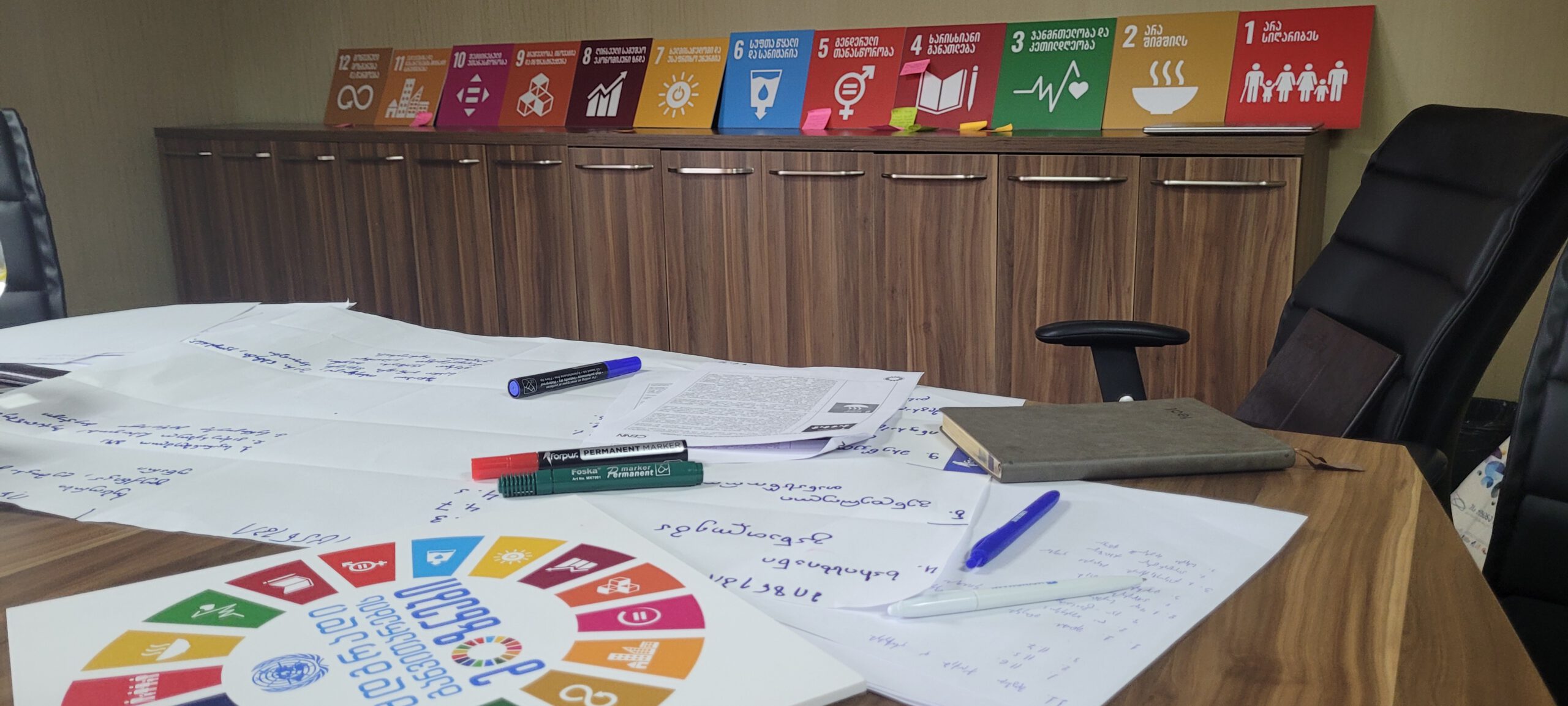CENN, with the financial support of the German government and in cooperation with the Secretariat of the SDG Council of Georgia (Government Administration), supported the local authorities of five municipalities (Kutaisi, Zugdidi, Batumi, Telavi, Rustavi) in developing municipal documents on Sustainable Development Goals (SDGs).
The local SDG documents are developed by municipalities in order to integrate the UN Sustainable Development Goals at the local level in accordance with the main development directions, priorities and needs of each municipality. The concept of the UN SDGs promotes a complex vision to socio-economic and environmental issues and promotes novel approaches to solving municipal problems, taking into account existing resources.
In the process of developing the priorities document, multi-sector engagement is critical to ensure that the needs of vulnerable groups are taken into account, local needs are thoroughly understood, and realistic tasks, indicators and targets are set.
Before the work on the local SDG priorities document began in the target municipalities, CENN also held awareness-raising meetings with the civil sector to promote their meaningful involvement in the localisation and implementation of SDGs at the local level. CENN also facilitated the organization of public meetings initiated by the local authorities for the public discussion of the working versions of the document, in which representatives of the local authorities, non-governmental organizations and civil society participated.
The mentioned SDG localisation activities were carried out within the “Continued Nationalisation of SDGs in Georgia” project, which aims to jumpstart SDG implementation, continue the nationalisation of new targets and commence the localisation of SDGs in Georgia. The program is financed by Deutsche Gesellschaft für Internationale Zusammenarbeit (GIZ) GmbH on behalf of the German Federal Ministry for Economic Cooperation and Development (BMZ).
By strengthening the capacity of the SDG Council’s Secretariat, the thematic Working Groups and non-state stakeholders, the project supports the development of institutions that will ensure the long-term sustainability of the steps taken by the country toward the Sustainable Development Goals; thus, it contributes to the country’s sustainable development.
